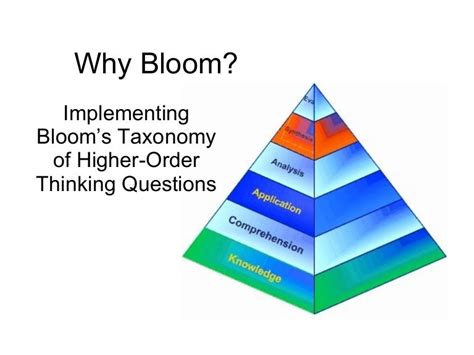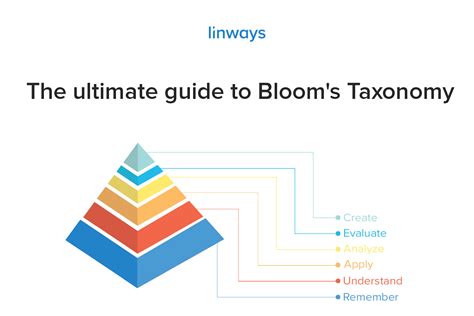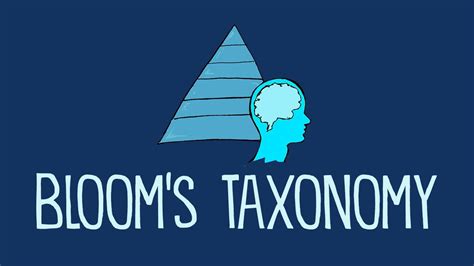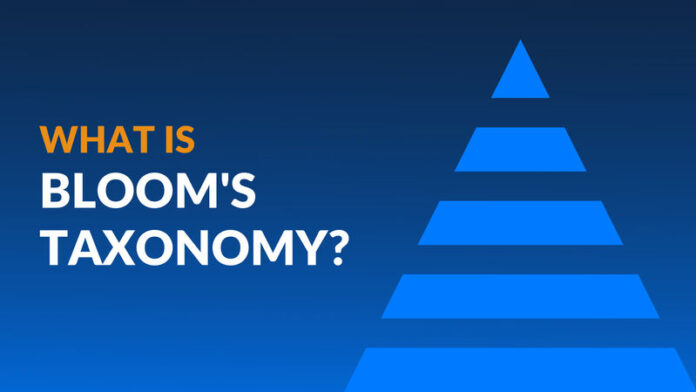In today’s rapidly evolving financial landscape, ongoing professional development is crucial for maintaining and enhancing financial literacy. As market dynamics shift and new financial instruments emerge, staying informed and adept becomes essential. Continuous learning not only sharpens your skills but also ensures that you are equipped to make informed decisions and navigate complex financial environments. This article delves into the significance of continuous professional development, exploring how it benefits financial literacy, identifies key areas of focus, and provides practical strategies for ongoing education. From certifications and advanced degrees to leveraging online resources, discover how dedicated development can lead to professional growth and success in the finance sector.
terylblog.com will lead an exploration of this topic in detail.
1. Introduction to Ongoing Professional Development
Ongoing professional development is essential in the ever-changing world of finance, where staying current with industry trends and advancements is crucial. It refers to the continuous process of acquiring new skills, knowledge, and competencies throughout one’s career. This commitment to learning helps professionals adapt to new technologies, regulatory changes, and emerging financial products.
In the financial sector, where precision and up-to-date knowledge are paramount, ongoing development ensures that individuals remain proficient and competitive. It involves not just formal education, such as advanced degrees and certifications, but also informal learning opportunities like webinars, workshops, and self-study.
Embracing ongoing professional development helps financial professionals enhance their expertise, adapt to industry shifts, and make more informed decisions. By committing to continuous learning, individuals can improve their ability to manage complex financial situations, ultimately leading to better outcomes for clients and personal career advancement. This proactive approach to learning is vital for sustained success and relevance in the finance field.

2. Benefits of Continuous Learning in Financial Literacy
Continuous learning in financial literacy offers several key benefits that can significantly impact a professional’s career and the broader financial industry. First and foremost, it enhances expertise by keeping individuals informed about the latest financial trends, tools, and regulatory changes. This updated knowledge enables professionals to provide more accurate advice, make informed decisions, and adapt strategies to meet evolving client needs.
Moreover, continuous learning fosters greater confidence in managing complex financial scenarios. As professionals deepen their understanding and skills, they become better equipped to tackle diverse financial challenges and offer innovative solutions. This increased competency not only benefits clients but also positions professionals as experts in their field.
In addition, ongoing education can lead to career advancement opportunities. Professionals who actively pursue learning are often recognized for their commitment and expertise, which can result in promotions, leadership roles, or specialized positions within the finance industry.
Continuous learning also promotes personal growth and job satisfaction. Engaging with new concepts and challenges keeps work dynamic and stimulating, reducing the risk of career stagnation. Overall, the benefits of continuous learning in financial literacy are profound, contributing to both personal and professional development while enhancing the quality of financial services provided.

3. Key Skills and Knowledge Areas to Focus On
To maximize the benefits of ongoing professional development in financial literacy, focusing on key skills and knowledge areas is essential. First, mastering financial analysis and data interpretation is crucial. This involves understanding financial statements, assessing investment opportunities, and using analytical tools to make data-driven decisions.
Next, staying updated on regulatory and compliance issues is vital. Knowledge of current laws, regulations, and industry standards ensures that professionals can navigate the financial landscape effectively and remain compliant with legal requirements.
Another important area is financial technology (fintech). As technology continues to reshape the industry, familiarity with fintech innovations such as blockchain, digital currencies, and automated investment platforms is increasingly valuable.
Additionally, developing strong risk management skills helps in identifying, evaluating, and mitigating financial risks. This includes understanding market volatility, credit risks, and operational hazards.
Lastly, effective communication and client management skills are essential. Being able to clearly explain complex financial concepts and build strong relationships with clients enhances trust and facilitates better service.
Focusing on these areas equips financial professionals with the tools and knowledge needed to excel and adapt in a dynamic financial environment.

4. Effective Strategies for Professional Development
Effective strategies for professional development in financial literacy involve a combination of formal and informal learning approaches. One key strategy is setting specific, measurable goals for your development. Identify areas where you need improvement or wish to gain deeper knowledge and create a plan with clear objectives and timelines.
Participating in relevant courses and obtaining certifications can significantly enhance your expertise. Enroll in specialized programs that offer up-to-date content on financial trends, regulatory changes, and emerging technologies. Certifications from recognized organizations not only validate your skills but also demonstrate your commitment to ongoing learning.
Networking with industry professionals and joining financial associations can provide valuable insights and opportunities. Engaging in discussions, attending seminars, and participating in workshops can expose you to diverse perspectives and emerging best practices.
Leveraging online resources is another effective strategy. Many platforms offer webinars, e-books, and interactive courses that allow you to learn at your own pace and stay current with industry developments.
Finally, applying what you learn in real-world scenarios is crucial. Seek out opportunities to practice new skills, whether through projects at work, volunteering, or personal financial management. This hands-on experience reinforces your knowledge and builds practical expertise.
5. Role of Certifications and Advanced Degrees
Certifications and advanced degrees play a pivotal role in ongoing professional development for financial literacy. These credentials offer formal recognition of expertise and dedication, distinguishing professionals in a competitive field.
Certifications such as Certified Financial Planner (CFP), Chartered Financial Analyst (CFA), and Certified Public Accountant (CPA) are highly regarded in the finance industry. They signify a deep understanding of financial principles, ethics, and regulatory requirements. Obtaining these certifications often involves rigorous exams and practical experience, ensuring that individuals are well-equipped to handle complex financial matters.
Advanced degrees, like a Master’s in Finance or an MBA with a finance concentration, provide a comprehensive education in financial theory and practice. These programs delve into advanced topics, such as strategic financial management, risk assessment, and financial modeling, offering a broad and in-depth perspective on the field.
Both certifications and advanced degrees also enhance credibility and career prospects. They can open doors to higher-level positions, specialized roles, and leadership opportunities. Furthermore, they demonstrate a commitment to professional growth and adaptability, essential traits in a rapidly evolving financial landscape.
Overall, these credentials not only validate expertise but also contribute significantly to career advancement and the ability to provide exceptional financial guidance.
6. Leveraging Online Resources and Courses
Leveraging online resources and courses is a highly effective strategy for ongoing professional development in financial literacy. The internet offers a wealth of learning opportunities that can be accessed anytime, anywhere, making it easier to stay updated with industry trends and expand your knowledge.
Many platforms provide specialized courses on financial topics, from basic principles to advanced strategies. Websites like Coursera, Udemy, and LinkedIn Learning offer courses designed by industry experts and academic institutions. These courses often include interactive elements, such as quizzes and practical exercises, to enhance learning and retention.
Webinars and online seminars are another valuable resource. They allow you to hear directly from professionals and thought leaders, offering insights into current trends, emerging technologies, and best practices.
Additionally, online forums and communities can facilitate knowledge sharing and networking. Engaging in discussions with peers and experts can provide diverse perspectives and practical advice.
Utilizing these online resources not only helps in acquiring new skills but also allows for flexible, self-paced learning. This approach ensures that you can continuously develop your financial literacy while balancing other professional and personal commitments.
7. Overcoming Common Challenges in Continuous Learning
Overcoming common challenges in continuous learning requires a proactive approach and strategic planning. One frequent obstacle is finding the time for professional development amidst a busy schedule. To address this, prioritize learning by setting aside dedicated time each week and integrating small learning activities into your daily routine.
Another challenge is staying motivated and maintaining consistency. Setting clear, achievable goals and tracking your progress can help keep you focused. Additionally, engaging with peers through study groups or professional networks can provide support and encouragement.
The complexity of new concepts can also be daunting. Break down complex topics into manageable segments and seek out resources that present information in an accessible manner. Interactive courses and practical exercises can aid in understanding and applying new knowledge.
Lastly, staying updated with rapidly changing industry trends requires regular engagement with current resources. Subscribe to industry publications, follow relevant online forums, and participate in webinars to ensure you remain informed and connected.
8. Real-Life Success Stories and Testimonials
Real-life success stories and testimonials illustrate the transformative impact of ongoing professional development on financial literacy. For example, Sarah Johnson, a financial advisor, enhanced her career by obtaining the Chartered Financial Analyst (CFA) designation. This certification not only deepened her knowledge but also led to a promotion and increased client trust. Sarah’s commitment to continuous learning allowed her to offer more sophisticated investment strategies and build a more robust client base.
Similarly, James Lee, a financial planner, leveraged online courses to gain expertise in fintech. By completing a series of specialized courses on blockchain and digital currencies, James was able to introduce innovative solutions to his clients and stay ahead of industry trends. His proactive approach to learning positioned him as a thought leader in his field.
These testimonials highlight how investing in professional development can lead to significant career advancements, increased credibility, and enhanced client relationships. They demonstrate that ongoing education is not just about acquiring new knowledge but also about applying it effectively to achieve tangible career growth and success.
Ongoing professional development is essential for enhancing financial literacy and achieving career success. By focusing on key skills, leveraging certifications and online resources, and overcoming common challenges, professionals can stay current and competitive. Embracing continuous learning not only fosters personal growth but also ensures the ability to provide exceptional service in a dynamic financial landscape.
terylblog.com
